At the opening of COP-27, Al Gore said:
We have a credibility problem all of us: We’re talking and we’re starting to act, but we’re not doing enough.
Gore got the first part right — the entire climate alarmist movement has a credibility problem as previously shown here and here. Gore himself has contributed much to this credibility problem over the years beginning with his infamously deceitful movie An Inconvenient Truth (2006). The film was so error-filled that a British judge required in October 2007 that it carry warning labels before being shown to school children.
Despite the court ruling, the Nobel Peace Prize committee awarded Gore and the United Nations’ Intergovernmental Panel on Climate Change (IPCC) its 2007 award. Gore accepted his Nobel Peace Prize in December 2007 and delivered his “Nobel Lecture” in which he made a number of apocalyptic claims. Now, 15 years later, as the climate alarmist community meets in Egypt at COP-27, its an appropriate time to examine Gore’s apocalyptic views mentioned in his Nobel Lecture with reality to date.
Present Temperature
Gore statement:
The earth has a fever. And the fever is rising.
2022 Reality:
Per the World Meteorological Organization, the average global temperature in 2020 was 58.8°F vs. a fever which is a body temperature in excess of 98.6°F or so. So no “fever.”
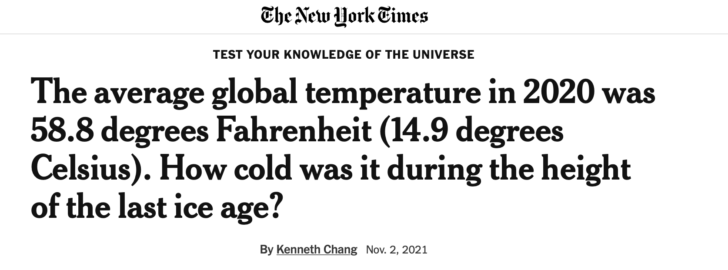
Future Temperature
Gore Statement:
“Svante Arrhenius calculated that the Earth’s average temperature would increase by many degrees if we doubled the amount of [carbon dioxide] in the atmosphere.”
2022 Reality:
We’re only about 50 percent of the way toward doubling the amount of carbon dioxide (CO2) in the atmosphere, but let’s consider where we are and what the future may hold.
At the present level of CO2 — i.e., 50 percent of the way to doubling the pre-industrial level — the United Nations Intergovernmental Panel on Climate Change (IPCC) estimates that we have experienced about 1.1°C of global warming since 1850-1900. A doubling of CO2 from the pre-industrial level would then by simple extrapolation indicate a future average temperature of 2.2°C.
The New York Times reports that by 2100, when the amount of carbon dioxide in the atmosphere will more than double the pre-industrial level of CO2, the alarmist-projected amount of global warming is estimated to be 2.1°C to 2.9°C greater than the pre-industrial temperature.
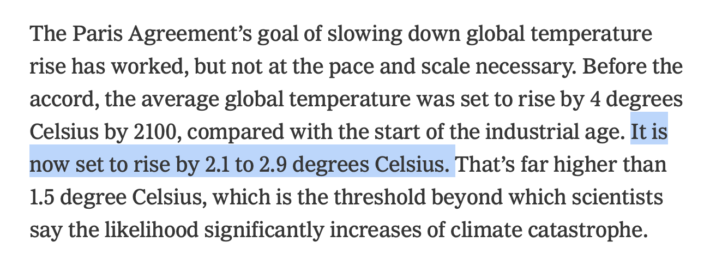
While these estimated temperatures are certainly “degrees” above the pre-industrial average temperature, they are certainly not “many degrees” above it.
Global temperature as its relates to atmospheric CO2 is a controversial topic and merits discussion beyond the scope of this effort, but suffice it to say that even IPCC calculations contradict Gore’s claim of “many degrees” of warming from a doubling of atmospheric CO2.
2. Polar Ice Cap
Gore Statement:
Last September 21, as the Northern Hemisphere tilted away from the sun, scientists reported with unprecedented distress that the North Polar ice cap is ‘falling off a cliff.’ One study estimated that it could be completely gone during summer in less than 22 years. Another new study, to be presented by U.S. Navy researchers later this week, warns it could happen in as little as 7 years. Seven years from now.
2022 Reality:
The Arctic ice cap has never “fallen off a cliff,” not in 2014 or as predicted or now in 2022. Per data from the Intergovernmental European Organization for the Exploitation of Meteorological Satellites (EUMETSAT), the Arctic hit an annual summertime low of about 4 million square kilometers of ice in 2012. In 2022, the annual summertime minimum had increased by about 25% to over 5 million square kilometers of sea ice. Not only is 5 million square kilometers of sea ice far different from ice-free, as Gore predicted, the annual minimum Arctic sea ice isn’t trending toward ice-free by 2030 either.

3. Drought and Melting Glaciers
Gore Statement:
In the last few months, it has been harder and harder to misinterpret the signs that our world is spinning out of kilter. Major cities in North and South America, Asia and Australia are nearly out of water due to massive droughts and melting glaciers.
2022 Reality:
There are no major cities anywhere in the world that are nearly out of water for any reason.
Droughts have always occurred and will continue to occur. No ongoing drought is unprecedented and none can be tied to manmade emissions of greenhouse gases. For example, the ongoing drought in the Western US is comparable to a drought that occurred in the 1500s, per a February 2022 study in the journal Nature Climate Change.
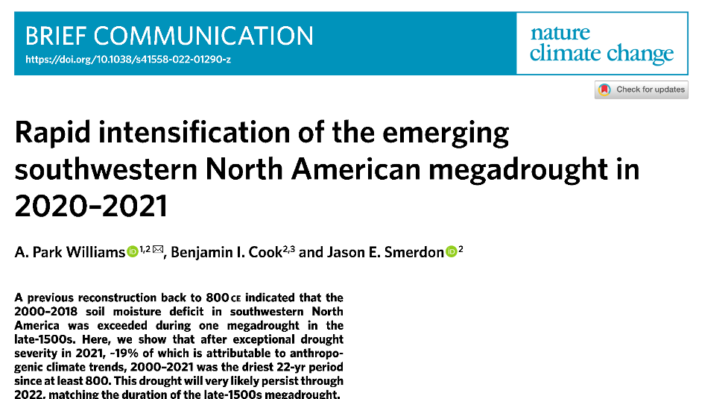
That megadroughts in the Western US are not unprecedented was even known at the time Al Gore delivered his Nobel Lecture as evidence by the chart below printed in Cook, Edward R., et al. “North American drought: reconstructions, causes, and consequences.” Earth-Science Reviews 81.1 (2007): 93-134. The chart shows that the recent natural history of the American West includes megadroughts lasting as long as 200 years. These droughts occurred well before industrial use of fossil fuels and during a period of comparable warmth.

As to Gore’s claim of melting glaciers, many glaciers have been receding since the end of a period called the Little Ice Age, which lasted from the 1300s to the 1800s. The coldest point of the Little Ice Age is thought to have occurred around the middle 1600s and the Northern Hemisphere has been warming ever since. This warming pre-dates the industrial age by 200 years. But glacier recession is more complicated than mere warming.
First, a recent study of temperatures in the Alps reports that there is no significant wintertime warming in the Alps since the 1970s.
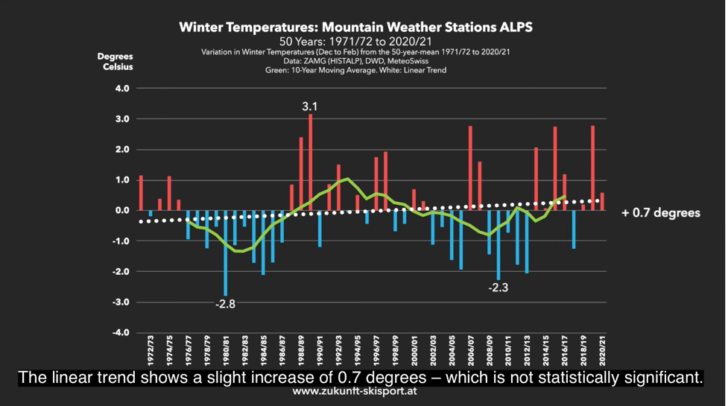
Next and as the US Geological Survey points out, glaciers can also recede due to sunshine (think of what a clearing sky does to snow after a snowfall even in below freezing temperatures) and sublimation (why dry air in freezers shrink ice cubes).
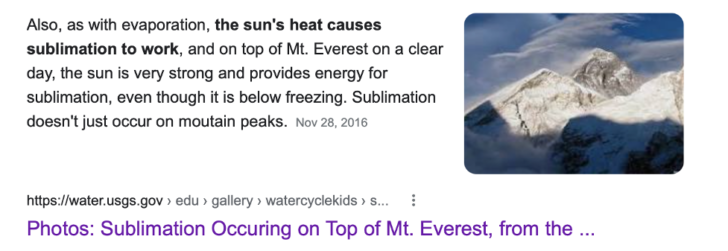
It is estimated that the Alps, for example, receive 200 more hours of sunshine annually now than they did at the end of the 19th century.
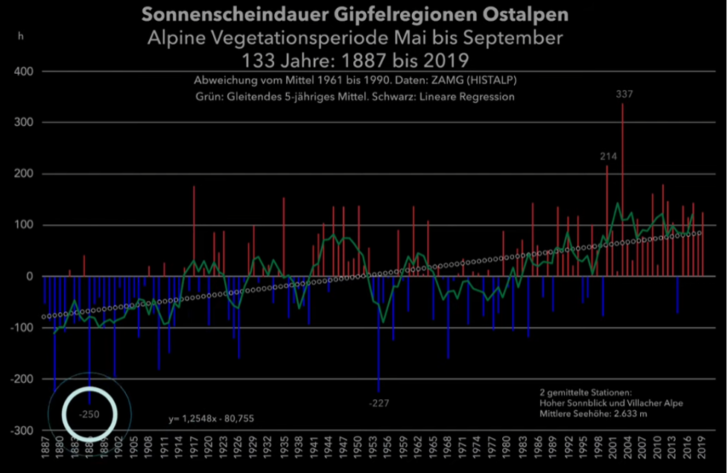
There is also the curious reality and inconvenient truth that receding glaciers in keep revealing recent human activity that could only have occurred when there was less ice.
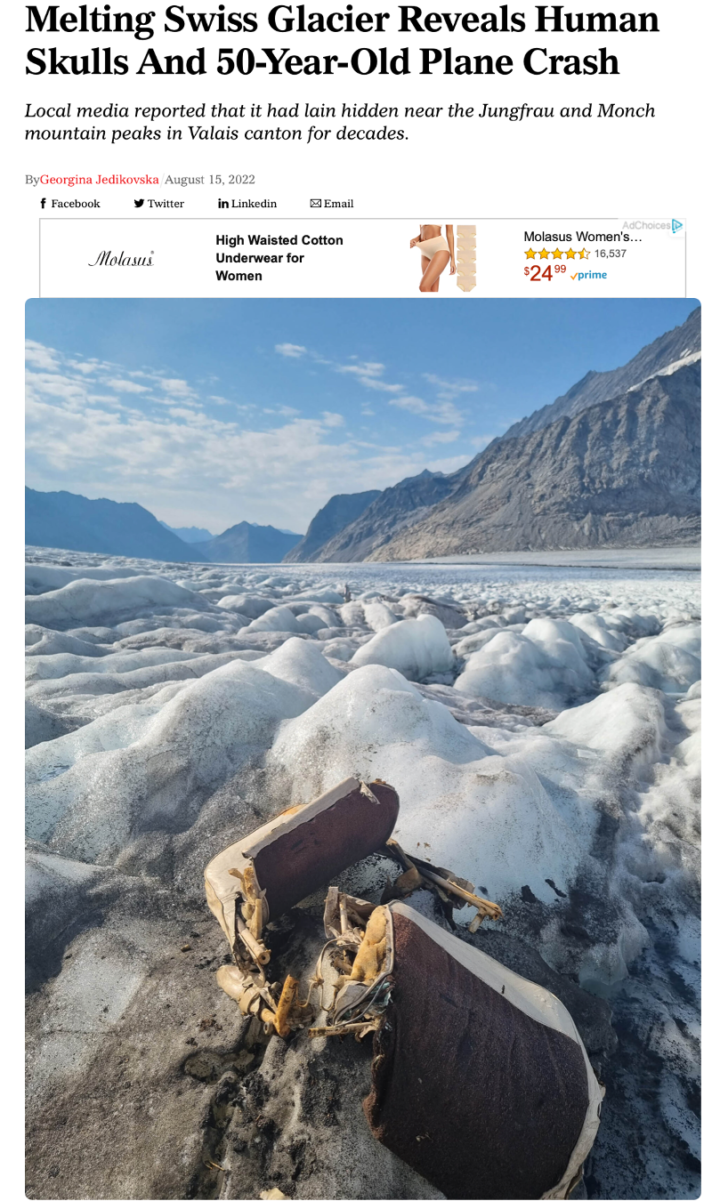
Finally and contrary to the notion that global warming is causing some massive disappearance of snow, data show that wintertime Northern Hemisphere snow cover has been increasing since the 1960s.
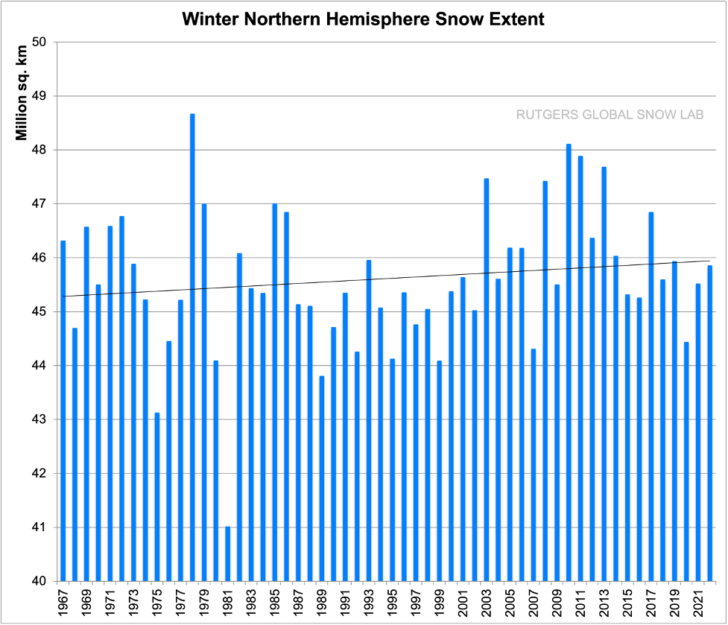
4. Agriculture
Gore Statement:
Desperate farmers are losing their livelihoods.
2022 Reality:
While farming has always been a risky occupation, the implication of Gore’s statement is that agriculture is at risk from global warming. Is it?
The New York Times reported in June 2022 that global production of primary grains increased 52% between 2000-2020. That record 9.3 billion metric tons works out to 1.20 metric tons per person as compared with 1.0 metric tons per person in 2000.

Moreover, research credits warming and better weather for the increased in corn production.
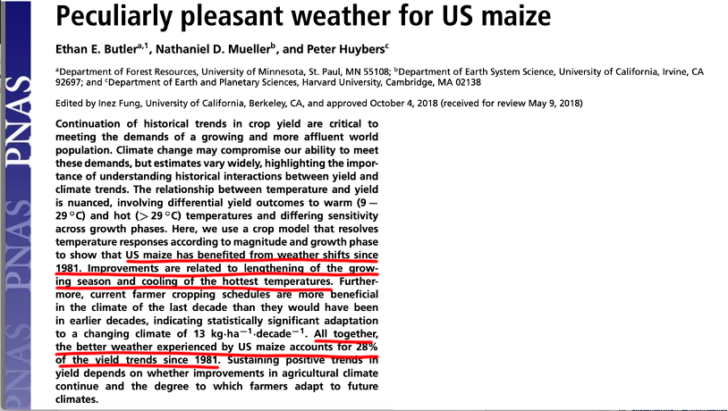
And whatever slight warming is occurring is expanding crop growing zones.

5. Climate refugees
Gore statement:
Peoples in the frozen Arctic and on low-lying Pacific islands are planning evacuations of places they have long called home. Unprecedented wildfires have forced a half million people from their homes in one country and caused a national emergency that almost brought down the government in another. Climate refugees have migrated into areas already inhabited by people with different cultures, religions, and traditions, increasing the potential for conflict… Millions have been displaced by massive flooding in South Asia, Mexico, and 18 countries in Africa.
2022 Reality:
First let’s address, Gore’s claim of “unprecedented wildfires.” A 2016 study published by the Royal Society reports, “global area burned appears to have overall declined over past decades, and there is increasing evidence that there is less fire in the global landscape today than centuries ago.”
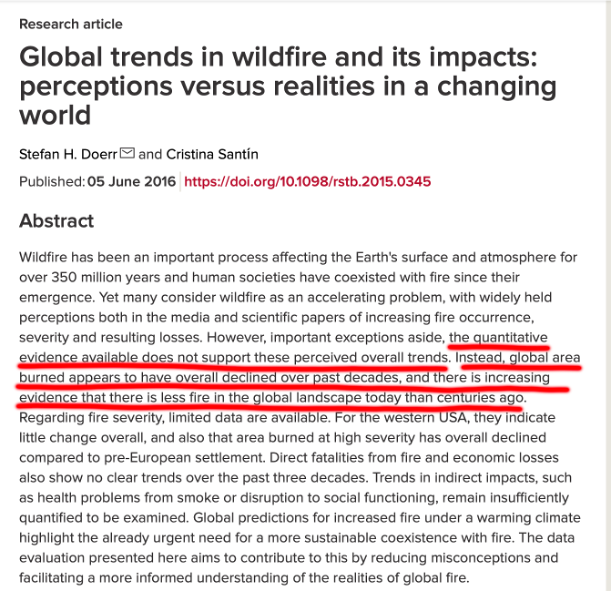
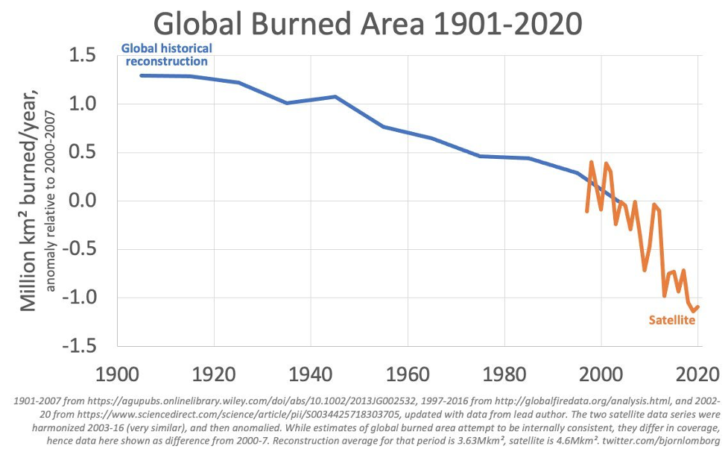
As to climate refugees, Gore’s claim is pretty vague though completely alarmist. A December 2019 study in Nature Climate Change pointed out that the subject of climate migration is not well-researched and there are lot of misleading claims and myths regarding it, some of which have no doubt been perpetuated by Al Gore himself.
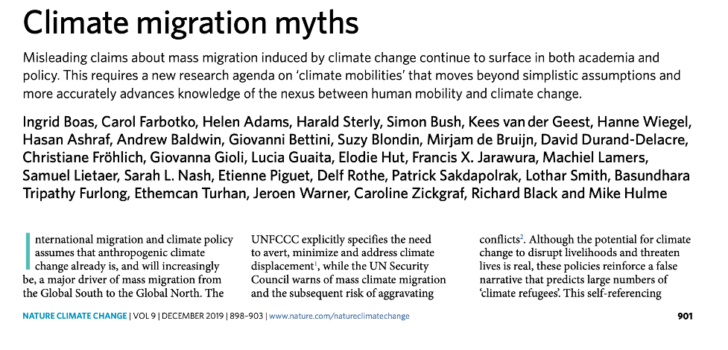
6. Hurricanes and Typhoons
Gore statement:
Stronger storms in the Pacific and Atlantic have threatened whole cities.
2022 Reality:
The National Oceanic and Atmospheric Administration measures global tropical storm activity in terms of the Accumulated Cyclone Energy (ACE) index. Meteorologist Ryan Maue concludes there is a downward trend on the ACE index since 1989, which is the opposite of what Gore’s claim implies.

7. Deaths from Extreme Heat
Gore statement:
As temperature extremes have increased, tens of thousands have lost their lives.
2022 Reality:
First, extreme temperatures have not increased. In the US where we have the best data, heat waves have declined in frequency and intensity over the past 100 years, per the most recent US National Climate Assessment graph below.
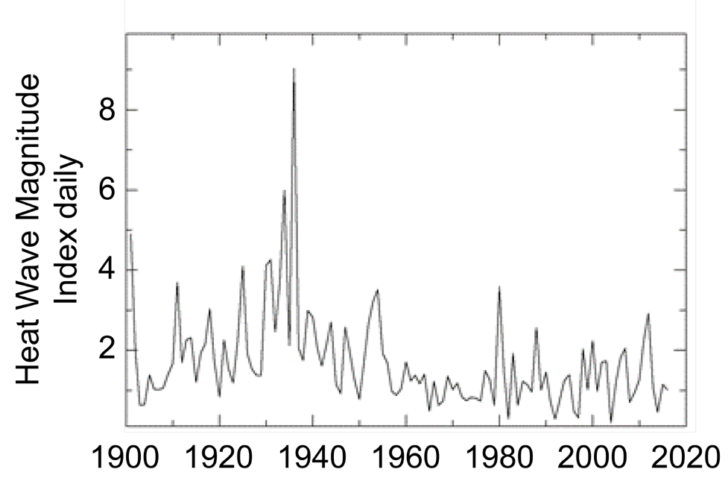
Not surprisingly, research also shows that US heat wave deaths declined between 1975-2018.
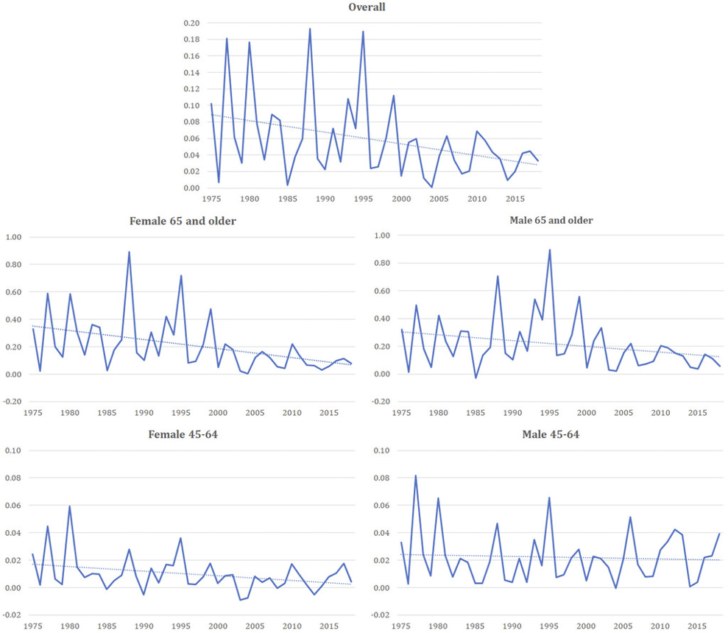
8. Deforestation and Species Extinction
Gore statement:
We are recklessly burning and clearing our forests and driving more and more species into extinction. The very web of life on which we depend is being ripped and frayed.
2022 Reality:
Thanks to slight warming and more carbon dioxide in the atmosphere, the Earth is greener (i.e., more vegetation, including trees) than ever, according to NASA. “The greening represents an increase in plants and trees equivalent in area to two times the continental United States, reports NASA.
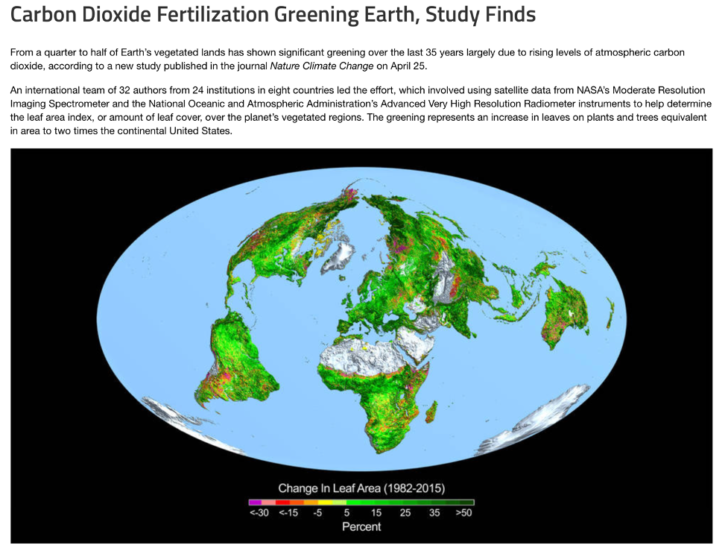
As to forest fires causing extinction, research reports the opposite.
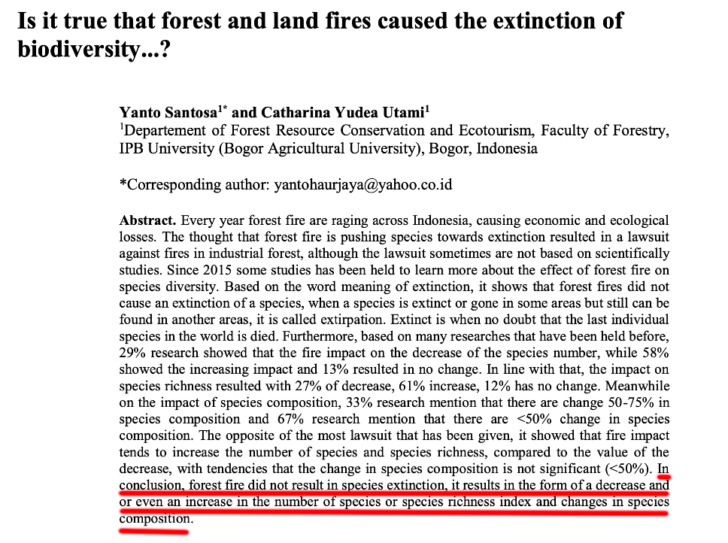
More generally, there is no evidence that global warming has led to the extinction of a single species, despite what the Australian government has proclaimed, as reported by Scientific American.
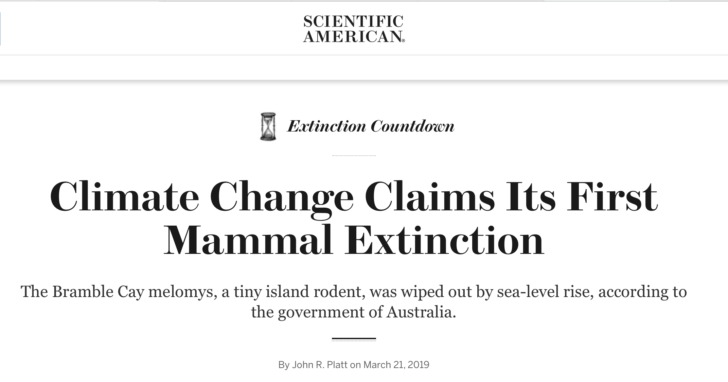
Unfortunately for the Australian government’s claim, though, Australia’s coasts and islands have been expanding in size. So if the rodent actually is extinct, it is unlikely to have been due to sea-level rise.
Conclusion
In the 15 years since Gore accepted his Nobel Peace prize, not a single apocalyptic climate prediction has come true. “We have a credibility problem,” he said at the opening of COP-27. Indeed, he does.
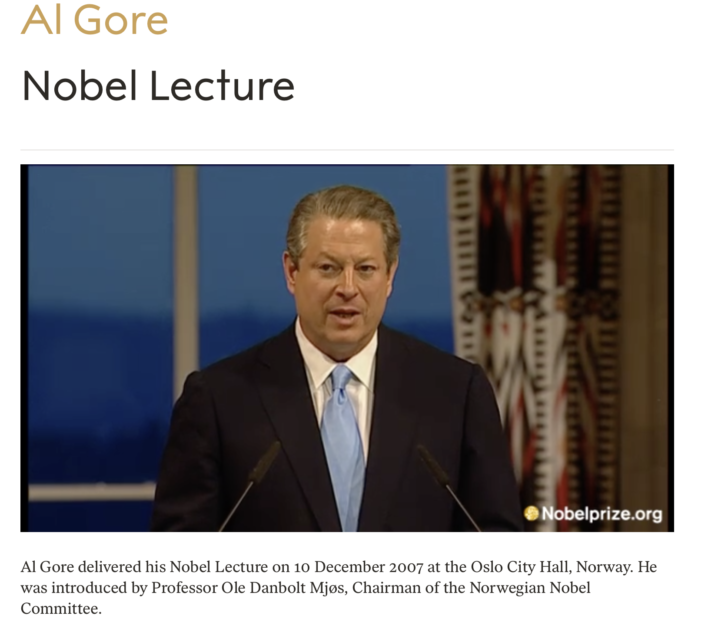
Well, you have to remember that Al Gore refuses to debate anyone about climate change, in fact he refuses to even be in the same room as anyone who disagrees with him. So you can’t expect anything “balanced” from him, it’s all one sided.